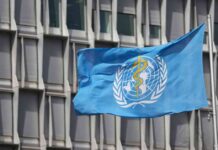It is recommended that everyone aged 6 months and older should receive a flu vaccine each season. This is especially crucial for individuals with cancer or a history of cancer, as they are at a higher risk of experiencing severe flu complications.
While it is not certain if cancer patients and survivors are more prone to getting the flu compared to others, it is known that having cancer can elevate the risk of flu complications. Individuals with weakened immune systems due to underlying diseases like HIV, AIDS, certain types of cancer such as leukemia, or treatments like chemotherapy and radiation are more susceptible to developing serious flu-related issues.
Therefore, it is highly advisable for cancer patients and survivors to get a flu shot. Flu vaccines have been proven to be safe for individuals with cancer and other health conditions. Additionally, those who live with or care for cancer patients should also consider getting vaccinated to lower the chances of transmitting the flu to the patient.
Older adults, particularly those aged 65 and above, may have a weaker immune response to flu vaccines, making them more vulnerable to flu or its complications despite being vaccinated. To address this, specific vaccines have been developed to enhance the immune response in older individuals.
In addition to getting a flu shot, individuals with cancer or compromised immune systems should inquire about receiving a pneumococcal vaccine. Having the flu can heighten the risk of contracting pneumococcal disease, particularly pneumococcal pneumonia, which can be fatal.
Considering the current COVID-19 pandemic, it is essential to note that flu vaccines and COVID-19 vaccines can be administered simultaneously. As the symptoms of flu and COVID-19 overlap, a test may be required to determine the illness. Individuals with weakened immune systems are at a heightened risk of experiencing severe complications from both flu and COVID-19.
In conclusion, protecting oneself from the flu through vaccination is crucial, especially for individuals with cancer or a history of cancer. By taking preventive measures such as getting a flu shot and considering additional vaccines like the pneumococcal vaccine, individuals can reduce the risk of serious flu-related complications. Additionally, staying informed about the relationship between flu, COVID-19, and cancer can help in making informed decisions regarding healthcare and well-being.


















